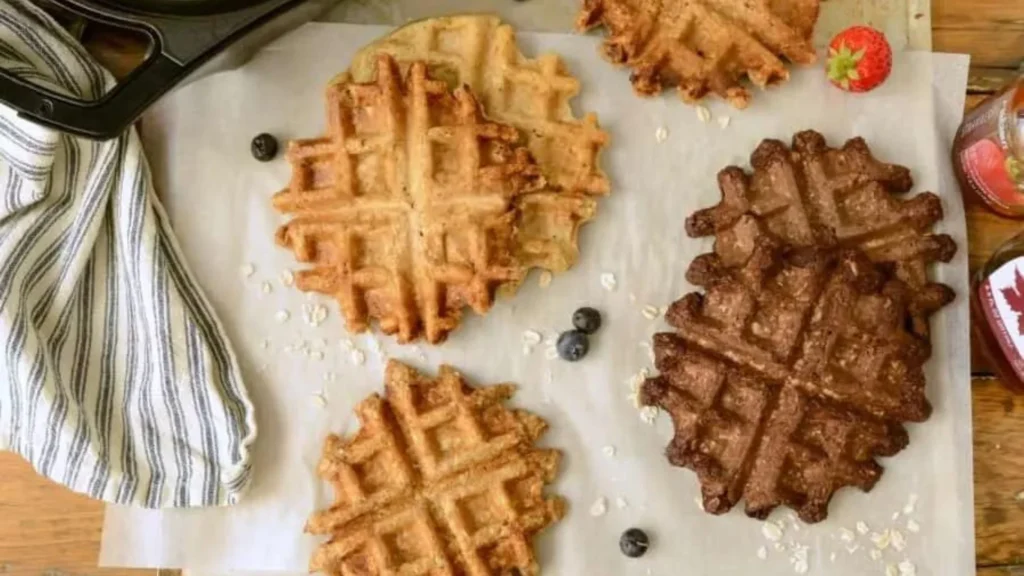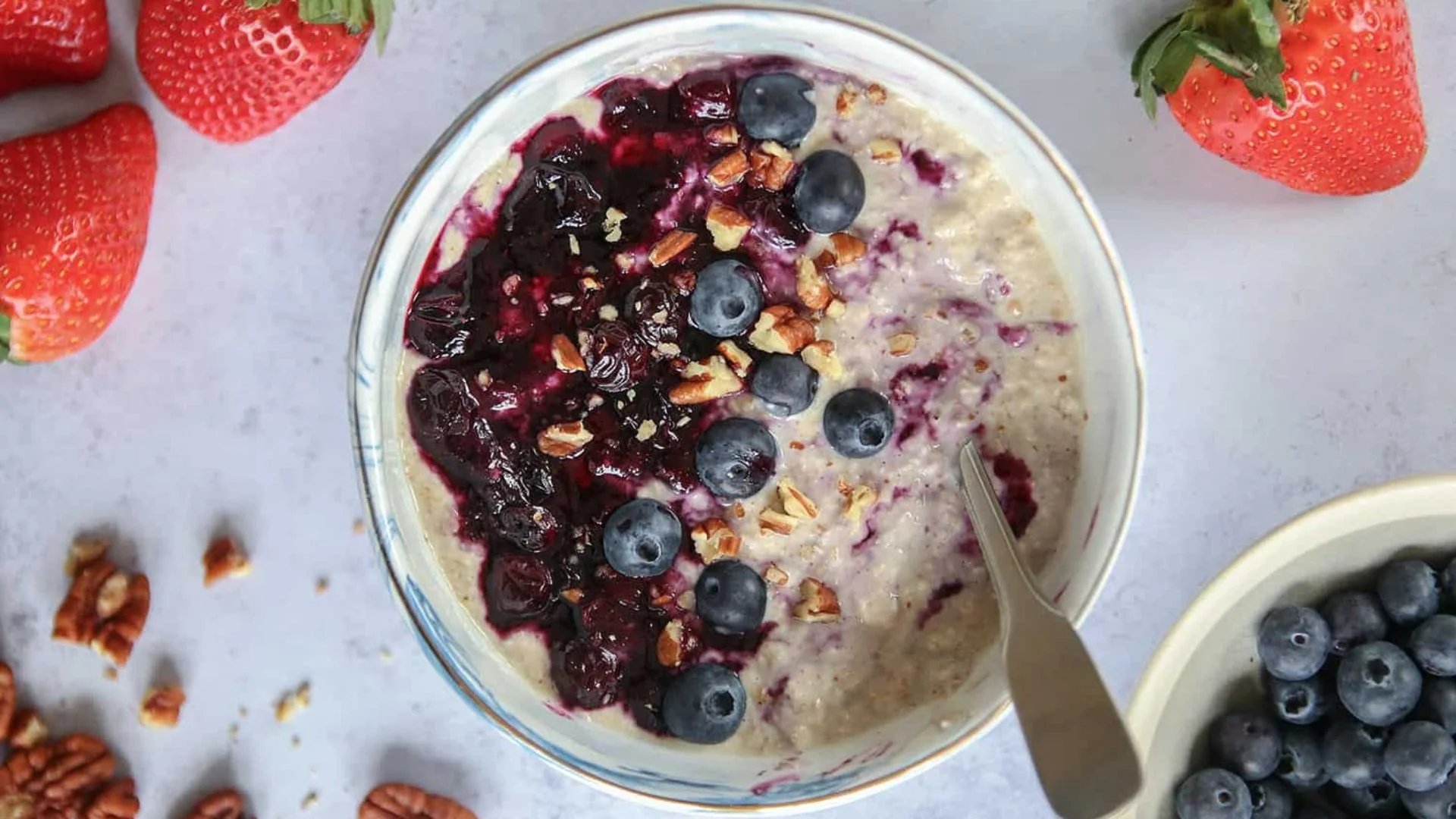Overnight oats have become a popular breakfast option in recent years, thanks to their convenience, nutritional benefits, and versatility. However, for those following a gluten-free diet, it’s essential to understand whether this breakfast staple is safe to consume.Are Overnight Oats Gluten-Free
Understanding Gluten and Oats
For individuals with celiac disease or gluten sensitivity, consuming gluten can trigger an immune response and cause a range of unpleasant symptoms, including abdominal pain, bloating, diarrhea, and fatigue.Are Overnight Oats Gluten-Free
Oats, on the other hand, are naturally gluten-free. Oats are a cereal grain that does not contain gluten, and they can be a safe and nutritious option for those following a gluten-free diet. However, there is a potential for cross-contamination during the growing, harvesting, and processing stages, which can introduce gluten into oat products.Are Overnight Oats Gluten-Free
Are Overnight Oats Gluten-Free?
The answer to whether overnight oats are gluten-free depends on several factors:
- The type of oats used:
- These oats are safe for individuals with celiac disease or gluten sensitivity to consume.
- The preparation method:
- Overnight oats are typically prepared by soaking rolled oats in a liquid, such as milk or plant-based milk, and allowing them to sit in the refrigerator overnight.
- If the overnight oats are made with gluten-free oats, they would be considered gluten-free.
- Additional ingredients:
- The toppings or mix-ins added to the overnight oats can also impact the gluten-free status of the dish.
- Some overnight oat recipes may include ingredients that contain gluten, such as granola, cookies, or flavored syrups. These additions would make the dish non-gluten-free.
It’s important to note that while oats themselves are naturally gluten-free, the risk of cross-contamination is a significant concern for those following a gluten-free diet. Are
The Nutritional Benefits of Overnight Oats
Regardless of theirstatus, can be a nutritious and filling breakfast option. Oats are a great source of complex carbohydrates, fiber, and a variety of essential vitamins and minerals, including:
- Fiber:
- Oats are high in soluble fiber, which can help regulate digestion, lower cholesterol levels, and promote feelings of fullness.
- Protein:
- Oats contain a moderate amount of protein, which can help support muscle growth and repair.
- Vitamins and Minerals:
- Oats are a good source of vitamins B1 (thiamine), B5 (pantothenic acid), and B6, as well as the minerals iron, magnesium, phosphorus, and zinc.
- Antioxidants:
- Oats contain antioxidants, such as avenanthramides, which can help reduce inflammation and protect against oxidative stress.
When combined with healthy toppings and mix-ins, such as fresh fruit, nuts, seeds, and nut butters, overnight oats can become a nutrient-dense and satisfying breakfast option.

Preparing
For those following a diet, it’s essential to carefully select the ingredients and preparation method for their Here are some tips for making
| Factor | Gluten-Free Overnight Oats | Non-Gluten-Free Overnight Oats |
| The type of oats used | Oats that are specifically labeled as “gluten-free” are processed in a way that eliminates the risk of cross-contamination with gluten-containing grains. These oats are safe for individuals with celiac disease or gluten sensitivity to consume. | Conventional oats, which are not labeled as gluten-free, may have a higher risk of cross-contamination and are not considered safe for a gluten-free diet unless they are processed in a dedicated gluten-free facility. |
| The preparation method | If the overnight oats are made with gluten-free oats, they would be considered gluten-free. | If they are made with conventional oats, they may not be safe for individuals with gluten sensitivities or celiac disease. |
| Additional ingredients | Ingredients like nuts, seeds, fruits, and nut butters are typically gluten-free, but it’s important to check the labels to ensure they were not processed in a facility that also handles gluten-containing products. | Some overnight oat recipes may include ingredients that contain gluten, such as granola, cookies, or flavored syrups. These additions would make the dish non-gluten-free. |
Potential Concerns for
While can be a safe and nutritious option for those following a diet, there are a few potential concerns to be aware of:
- Cross-contamination:
- As mentioned earlier, the risk of cross-contamination with gluten-containing grains is a significant concern for individuals with celiac disease or gluten sensitivity. Even small amounts of gluten can trigger an immune response, so it’s essential to choose oats that are certified gluten-free.
- Oat Sensitivity:
- This is a relatively rare condition, but it’s something to be aware of if you experience any adverse reactions after consuming overnight oats.
- Trace Amounts of Gluten:
- This is particularly true for individuals with highly sensitive reactions to gluten.
If you experience any symptoms of gluten exposure, it’s best to discontinue consumption and consult with a healthcare professional.
Alternatives to
If you’re unable to find or consume gluten-free overnight oats, or if you have an intolerance to oats, there are several alternative breakfast options that can be suitable for a gluten-free diet:
- Chia Pudding:
- Quinoa Porridge:
- Gluten-Free Granola:
- Frittatas or Quiches:
- Smoothies:
- Blend together gluten-free fruits, vegetables, protein sources, and dairy or plant-based milk for a nutrient-dense breakfast.


One Reply to “Are Overnight Oats Gluten-Free”